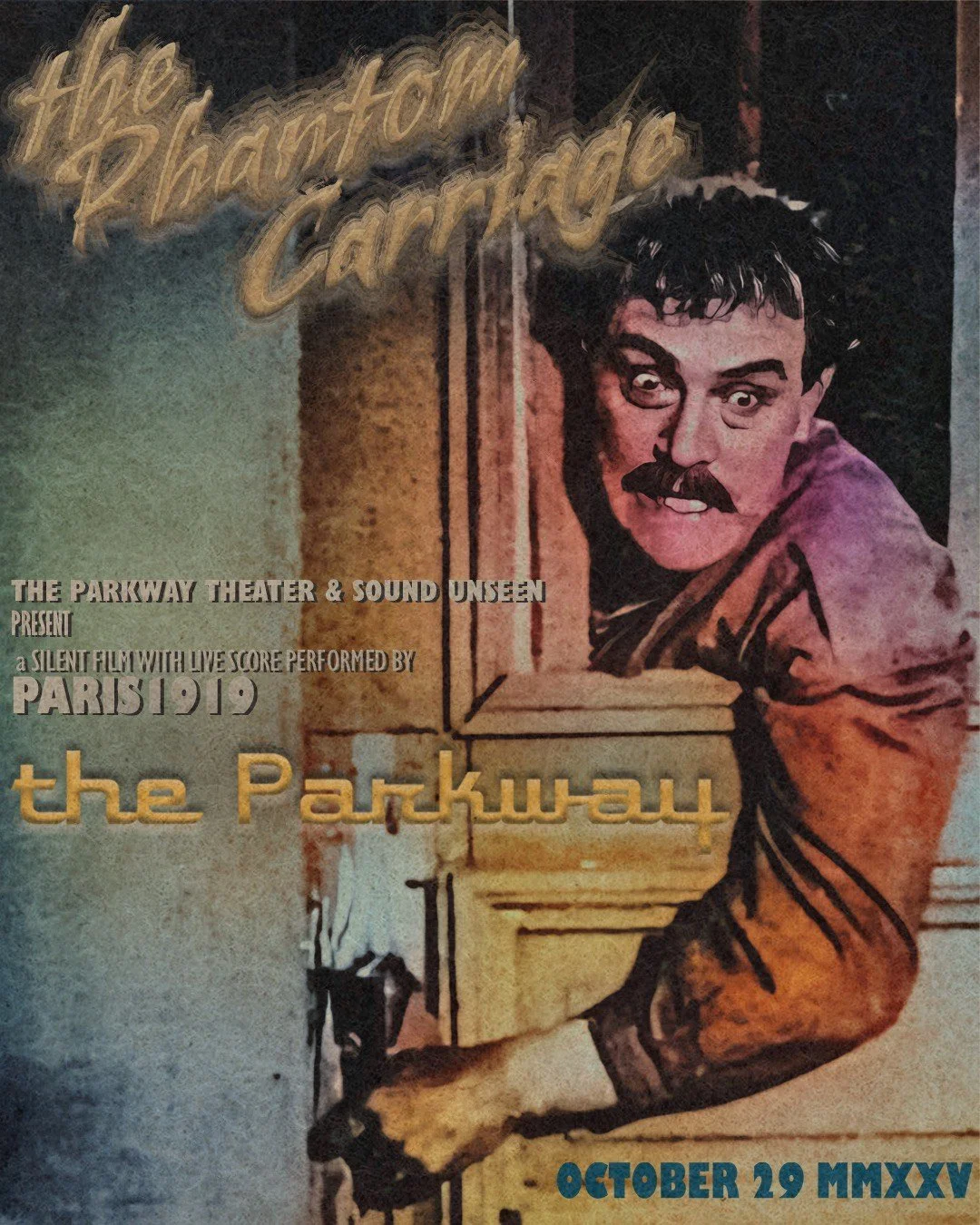Co-presented by American Swedish Institute and Sound Unseen
Wednesday, October 29, 2025
6:30 pm Doors // 7:30 pm Music + Film
All Ages
$15 ($20.21 w. taxes/fees) Advance General Admission
$20 ($23 w. taxes/fees) At The Door General Admission
Ticket purchases are final and non-refundable
Facebook RSVP
The next installment of this unique film series pairing iconic silent films with original scores by celebrated composer Chris Strouth and performed by the musical collective, Paris 1919. The series continues with a rare screening of The Phantom Carriage (Swedish: Körkarlen, literally "The Wagoner"), a 1921 Swedish silent film directed by and starring Victor Sjöström, based on the 1912 novel Thy Soul Shall Bear Witness! (Körkarlen) by the first female winner of the Nobel Prize for literature, Selma Lagerlöf.
The Phantom Carriage is a classic of not just the silent film era but of film in general and is often found on any number of greatest films lists. It is considered to be one of the central works in the history of Swedish cinema, having a massive influence on any number of filmmakers including Ingmar Berman and Stanley Kubrick.
While the film is considered one of the first, and an archetype of horror films, it is much more than that: it is a morality tale and a psychological drama, part of the horror is reflected in humanity itself. The film is a visual masterpiece with first time special effects, utilizing an innovative narrative structure with flashbacks within flashbacks, and for having been a major influence on future generations of filmmakers.
This screening will be live-scored with a performance featuring new work by Paris 1919, the musical collective of celebrated composer Chris Strouth and select Twin Cities musicians, including Natalie Nowytski (a classically-trained vocalist-turned-folk music geek who sings in 50+ languages and 12+ distinct vocal styles), guitarist Kent Militzer, multi-instrumentalist David J. Russ, and featuring Terrell X’avion aka Carnage The Executioner.
Co-presented by American Swedish Institute and Sound Unseen.
Chris Strouth’s roots as a musician and electronic artist go back to the 1980s, when he got his start as part of the punk art collective around Rifle Sport Gallery in downtown Minneapolis. Since then, he has become a producer, scenemaker, and composer of complex, immersive works, often written for large-scale ensembles or collectives such as Future Perfect Sound System and Paris 1919, with whom he has released four albums and an EP since 2011, most recently 2022's Future Archaeology.
The music Strouth creates defies easy categorization and, as with many forms of art, sticking a label on it is perhaps unhelpful — to listeners and to the music itself. Instead, it transcends genre. DJ and electronic musician Kid Koala has praised Strouth's work as "sometimes futuristic, sometimes nostalgic, but always evocative, dwelling in a perfectly focused space between tranquility and chaos. It is the type of music that is a screenwriter's dream."
Paris 1919's music can be jaggedly buzzing and sinister, ethereal and serene, melancholy and stately. There is at times an almost science-fictional quality that seems to blend the mechanical with the organic. There are echoes of the industrial throb of Coil or Throbbing Gristle, Ennio Morricone's film score for The Thing, Enoesque ambience, the Red Room sequences in David Lynch's Twin Peaks, Pink Floyd's more cosmic psychedelia, silent-film innovator Georges Méliès, and more.
Still, if a genre label is needed, Strouth's emphasis on digital manipulation and sometimes dark, unsettling atmospherics congenially resonates with both modern neo-classical and ambient drone music, even if it won't fit neatly into any one box.




